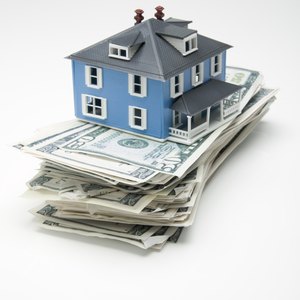
The assessment value of a home is used to determine property taxes -- not to be confused with the appraisal value, which is used to determine a home’s current market value. A town, city or county usually reassesses properties every three years, sometimes even longer. So a home may be assessed at a higher (or lower) value than it’s actually worth, possibly resulting in a higher (or lower) tax bill. Negotiating or appealing the assessment value could lead to significant savings.
Contact your local tax assessor's office and learn the appeals process for your city, town or county. You'll need to find out if you can meet with the assessor if you must protest the assessment in court. You must also clarify any deadlines, including the date assessment notices mailed and the window for appeals. This window varies by jurisdiction -- it typically ranges from 30 days up to 120 days
Look at your annual property tax bill and determine if you have valid grounds for an appeal. If your house has been assessed at a higher rate than similar homes, or if you believe there is an error in the assessment, an appeal may be warranted.
Collect evidence to build your case that the assessed value of your home is incorrect. Gather sales data from the period in which the reassessment occurred for similar homes in your area, available at the tax assessor's office or from a real estate agent; find five or more homes with lower valuations. Compare the value of those homes to your assessed value.
Appeal your assessment. You must follow the procedures outlined by your local tax assessor's office; typically, you submit the evidence gathered demonstrating that your home’s assessed value is incorrect. The assessor may accept your appeal and subsequently adjust the assessed value of your home. The assessor may reject your appeal, in which case you can go to court to pursue it further.
Tips
An assessed value could also be incorrect due to inaccuracies, such as not including additions or modifications to the property, miscalculating square footage or differing views of what constitutes year-round living space. A current appraisal for you home is not required, but identifies potential errors in assessment.
Warnings
Even if your assessed value is lowered, that does not necessarily equate to lower property taxes. The assessed value is only one component of your property taxes. The other is the mill rate, which is multiplied by the assessed value to determine your taxes. If the mill rate is increased that could offset any adjustments to your assessment.
Your assessed value could actually increase as a result of your appeal, if it is discovered that your home has increased in value more than the average home in your area since the last assessment.
References
- Zillow: Assessed Values vs. Appraised Values
- BusinessWeek: How to Reduce Your Property Taxes
- Bankrate.com: Protesting Your Property Assessment
- Internal Revenue Service. "4.48.6 Real Property Valuation Guidelines." Accessed April 10, 2020.
- State of New Jersey. "Property Tax." Accessed April 11, 2020.
- Internal Revenue Service. "Topic No. 151 Your Appeal Rights." Accessed April 11, 2020.
Tips
- An assessed value could also be incorrect due to inaccuracies, such as not including additions or modifications to the property, miscalculating square footage or differing views of what constitutes year-round living space. A current appraisal for you home is not required, but identifies potential errors in assessment.
Warnings
- Even if your assessed value is lowered, that does not necessarily equate to lower property taxes. The assessed value is only one component of your property taxes. The other is the mill rate, which is multiplied by the assessed value to determine your taxes. If the mill rate is increased that could offset any adjustments to your assessment.
- Your assessed value could actually increase as a result of your appeal, if it is discovered that your home has increased in value more than the average home in your area since the last assessment.
Writer Bio
Based in Washington, D.C., Jeremy Watson is an engineer and urban planner. He has been involved with urban design, city infrastructure and business since 2008. Watson holds a Bachelor of Science in civil engineering from the University Florida, as well as a Master of Science in urban and regional planning from Virginia Tech.

